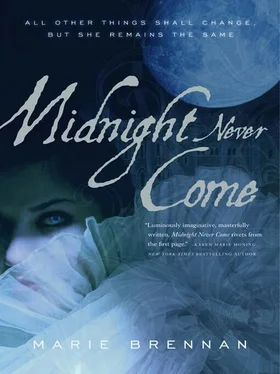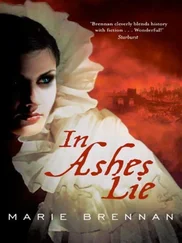Why did you choose the Elizabethan period as your focal point for Midnight Never Come ?
At a guess, I’d have to say my interest started with Shakespeare; I’ve always loved certain of his plays. (Surprise, surprise.) But it grew past that about ten or twelve years ago, when I read Shakespeare of London by Margaret Chute; that book approaches him as a working member of a company rather than as a great literary genius, and it may have been my first introduction to the world of Renaissance London. I fell in love pretty fast. It’s a fascinating period all over Europe, really — ferocious religious tension and conflict, and yet despite that (or because of it?) such a vibrant time culturally. It offers the prospective author a lot to play with.
And Elizabeth herself is interesting because even in her own time, they deliberately built her up as this iconic figure, as a means of legitimizing her rule as a Protestant and a woman on the throne. It explains a lot of her cult following even today. I’m not as much of an idolater as I used to be; these days, I’ve done enough research to recognize her flaws. But I still have a lot of respect for her, and for the people around her. There are a lot of great names from her reign: Walsingham, Burghley, Ralegh, Drake, Dee, Marlowe, Shakespeare, and so on.
Plus, I like the clothes. Though I could do without the extremes of fashion: oversized cartwheel ruffs, enormously padded sleeves, and all the rest. Give me a streamlined Elizabethan look, thank you. (Which is more or less what I put the fae in.)
This novel grew out of your experience with a role-playing game. How did that drive you to create the novel?
Some time ago, White Wolf published a game system called Changeling: The Dreaming , which is about playing faeries in the modern world. I ran a game of my own in that system during 2006, but it ended up being pretty non-standard, starting with the fact that it went through six hundred and fifty years of English history — backward . (I called it “Memento,” after the similarly-structured movie of the same name.) The Elizabethan segment of the game, originally set in 1589, grew like kudzu; it sprouted backstory starting in the mid-fourteenth century and repercussions going all the way to 2006, and more to the point, it wouldn’t leave my mind . Specifically, Francis and Suspiria wouldn’t leave my mind.
So I did some narrative surgery, lifting that part of the story out of the broader context of Changeling and Memento, and reworked it as a novel. A few key points of the plot are drawn from the game, but since we had only three evening sessions in which to play it, I had to do a lot of expanding, and things don’t happen exactly the way they did the first time. I also had to do some work to remove the Changeling -specific elements, but not as much as I expected; when you get right down to it, both the game designers and I were working from the same source, namely, real-world faerie lore. If you still see some similarity, that’s why.
What types of media influenced this story?
Shekar Kapur’s movie Elizabeth left a strong imprint in my mind (and I’m delighted to see he’s made a sequel). I recognize the liberties he’s taken with history, but Cate Blanchett makes a fantastic Elizabeth, and Geoffrey Rush ain’t bad as Walsingham, either. The Onyx Court owes a lot to that film; Kapur’s vision is very rich and dark.
I also think Invidiana’s the conceptual daughter of Maleficent in Disney’s Sleeping Beauty , though I’d written the whole novel before I noticed that.
Music was a huge part of writing this book. Since I made “soundtracks” (i.e. mix CDs) for my game, I started off with some songs already chosen; I also made playlists for different moods — the mortal court, the Onyx Court, confrontations, romantic/sad scenes (funny how those two go together), church scenes, and tavern/city scenes. Those were playing on shuffle while I wrote, and then in the end, for the first time ever, I went the extra step and made a “novel soundtrack.” You can see the full listing on my website, and if you have a good film score collection, you can reconstruct most of it for yourself.
What can you tell us about your faerie research?
Without realizing it, I set myself a big challenge at the outset: keeping it English. Most of the faerie fantasy I’ve read, especially the modern urban fantasy, takes a globalizing approach, where a redcap and a kitsune and a leshy might all rub shoulders. That approach has a lot of fun potential, but for a story set in the sixteenth century, I decided I wanted to preserve regionalism as much as I could.
Which turns out to be harder than you might think: many of the most famous bits of faerie lore (like the sidhe , or the Seelie and Unseelie Courts) turn out to be Irish or Scottish. If you strip those away, then the next biggest category is probably Welsh. Strip that away, and you find yourself looking at Cornwall and Yorkshire. We’ve got precious little surviving faerie lore from central and southern England. But although it’s a lot of work, I’m glad I did it; my own setting felt more real to me because I could talk about continental fauns and muryans from Cornwall and redcaps along the Border, and how the Goodemeades are from the North originally, because that’s where stories of brownies come from.
I’m deeply indebted to the folklorist Katherine Briggs. Not only does she have two very useful books on general British faerie material ( British Folk-Tales and Legends , and The Faeries in Tradition and Literature ), she wrote one called The Anatomy of Puck that’s specifically about the lore of Shakespeare’s time. I couldn’t have asked for a better resource.
What about the historical research?
There was a lot of it.
I ended up with nearly three shelves of the small bookcase in my office devoted to nothing more than the books I was using to write this novel. Biographies, books about London, some literature from the time period, architectural histories… the list seemed endless. Like an optimistic fool, I believed at first that a time would come when I would say “okay, that’s it for the research” and be done. God only knows where I got that idea; maybe my subconscious was in denial. Research never ends. There’s always two or three more books that will be the last, you swear. I think I was reading William Tighe’s dissertation on the Gentlemen Pensioners while I was in revisions.
But the good news is, it’s fun. I can’t remember where I came across this line, but someone once said history was a cross between a disaster movie and a celebrity tabloid; I love that description. The further I got into the biographies, the more people came to life, with all kinds of quirks and warts and behaviors that make you think, humans haven’t fundamentally changed. The surface details, sure, but where it really counts, they’re not so different from us.
So I guess what I would say is, it’s a tremendous amount of work, but the payoff is worth it. As long as you enjoy history, anyway, and if you don’t, what are you doing writing a historical novel? There are easier ways to go crazy.
How was writing this book different from others?
Not since the first novel I wrote (which was not Witch ) has a project eaten my head so thoroughly. Part of it, I’m sure, was the necessity of research; when I wasn’t writing, I was eyeball-deep in nonfiction. I’ve done spot research before — reading up on poisons for Warrior , for example — but never on anything like this scale, because I was never representing a real time period and place before. But I think it was more than that.
Читать дальше












